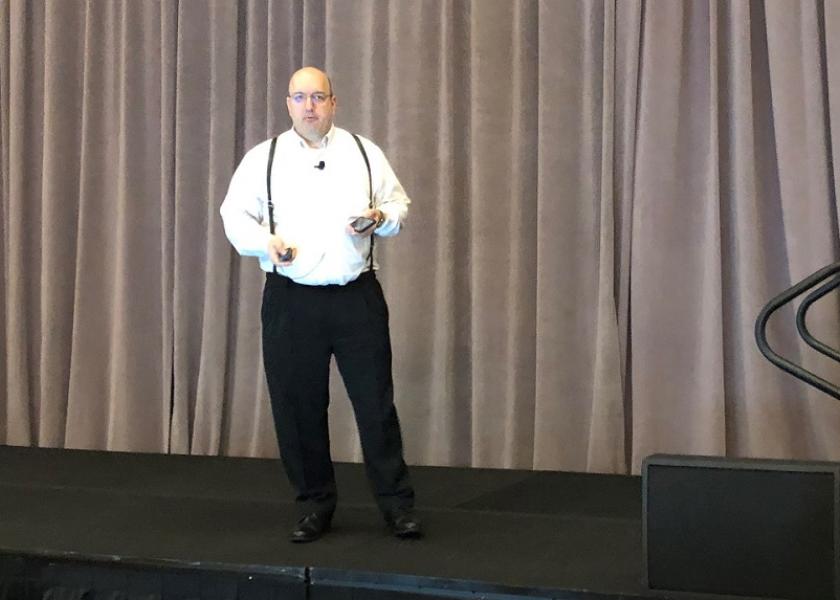Engage with emotion, consultant tells Viva Fresh audience

Grapevine, Texas – Consultant Richard Kottmeyer challenged produce marketers to rethink their assumptions about branding and reputation management in an April 22 education session at the Texas International Produce Association's Viva Fresh show.
In his hour-long session, Kottmeyer, managing director of FTI Consulting, Atlanta, Ga., said that agriculture advocates shouldn’t underestimate the intelligence of consumers. At the same time, he said ag advocates shouldn't “vomit science” to consumers, but rather respond with engagement, emotion and simple messages.
“The first thing you have to absolutely understand when dealing with agriculture and the consumer is that the consumer is going to be ignorant, but they're not dumb,” he said. “We make this critical mistake all the time.”
Consumers may indeed believe that genetically modified organism-free salt is desirable, that chemicals make food unsafe or that using natural manure makes vegetables safer.
Yes, those are wrong-headed notions, but Kottmeyer said the industry can’t respond with condescension.
“We have this natural tendency to be condescending, and to forget the consumer knows exactly what they want — what they want from the farmer, what they want from the processor, what they want from the retail grocer,” he said. “They just don't always know how to get it. And that confusion is where real reputation management and advocacy comes in."
In particular, Kottmeyer said produce marketers must engage with consumers on social media and other communication platforms.
“Too often, (agriculture) has been too complacent, and being complacent or not caring are the exact thing to the consumer,” he said. “The unengaged is evil.”
Reputation management should not happen only in a crisis, he said “You do [reputation management] so you don’t need to [in a crisis]."
Kottmeyer also urged the industry to not be afraid to hire brand managers who have experience marketing outside of the agriculture industry. Bring in talent that has marketed video games or fashion, for example, he said.
Messaging
Perhaps 30%-40% of consumers are now measuring their health results with a smartwatch or other connected device, Kottmeyer said.
“We're measuring health, and that's why claims that are measurable are mattering to the consumer, while a general claim is losing its importance,” he said.
Grower claims such as using 95% less water used in a greenhouse setting or 75% less pesticide use are examples of messages that resonate with the consumer, he said.
Ag marketers typically believe that putting farmers in the spotlight is always a good idea, but Kottmeyer said that isn’t the case.
“Everybody who's in marketing and agriculture has a false belief, the absolute false belief, that the consumer loves the farmer; they don't,” he said.
According to Kottmeyer, consumers expect farmers to look a lot like the hardscrabble Pa Ingalls from author Laura Ingalls Wilder's beloved "Little House on the Prairie" series, largely based on Ingalls' own life-on-the-farm upbringing in the 19th century. The reality, however, is that many farmers nowadays are savvy multimillion-dollar operators with college degrees, Kottmeyer said.
Still, although noting the exceptional influence and broad appeal that onion grower Shay Myers has cultivated on social media, Kottmeyer said most modern growers are not nearly as effective messengers.
Kottmeyer said a determined activist could attack any part of the industry, including the “sacred cow” of organic produce. The industry must be ready to respond, he said.
As an example of poor communication with consumers, Kottmeyer recalled the “pink slime” controversy of 2012, when the meat industry “vomited science” to the consumer in response to viral media coverage of the meat additive.
“What the industry did was the absolute worst thing you could possibly do; it decided it was going to fight emotion with science,” he said. Instead, ag marketers must engage with emotion and tell a story, he said.
“Sometimes we have to oversimplify … you need to be able to meet one story with another,” he said.







